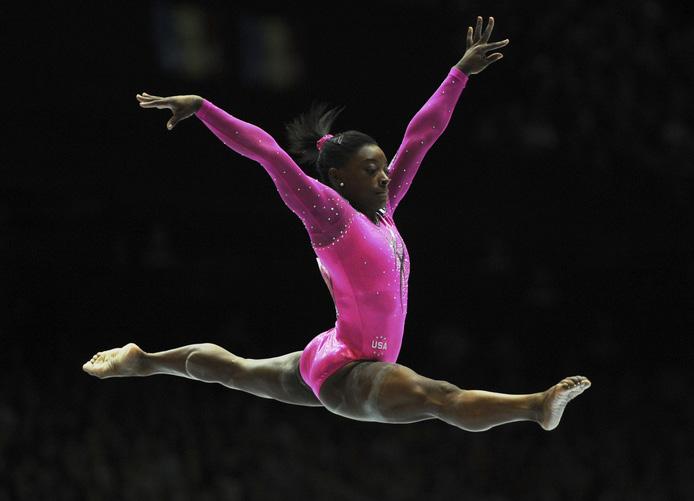
4 minute read
Mental Health for the Win
Mental HealthFor The Win
Simone Biles sets the bar for knowing your limits
Advertisement
By Mary Demarco, News and Sports Editor
As one of the most accomplished gymnasts in the world, and a seven-time Olympic medalist, many people thought it was insane for someone like Simone Biles to drop out of several Olympic events. She’s already this far, why quit? According to school psychologist Bonnie England, what many people don’t realize is that mental health is more than just how you’re feeling. “It’s so hard to consider that we are a holistic person who is all connected,” England said. “There are physical symptoms and our emotions can manifest in physical ways.” For example, Simone Biles found herself unable to perform because she was getting what she called the “twisties.” Despite being an excellent, top tier gymnast, she was having trouble telling up from down in midair. Over the next few days, she decided to drop two of her many events in the Tokyo Olympics. But this doesn’t mean Biles was quitting on the sport or even on herself. She took the necessary steps to aid both her mental and physical health. “I just don’t trust myself as much as I used to,” Biles said in an interview with Sports Illustrated. “I don’t know if it’s age, but I’m a little bit more nervous when I do gymnastics. I feel like I’m also not having as much fun, and I know that.” No matter if it’s the Olympics or a high school competition, listening to one’s body and mind is imperative to long term success. Senior softball player Molly Jefferson has noticed the effects of trying to do too much at once. “If I do too much softball, my body gets physically ill,” Jefferson said. “It’s me overworking myself but it’s not physical, it’s mental. You have to know when to take a step back and you have to know that it’s okay to step back.” “Mental health problems can affect a student’s energy level, concentration, dependability, mental ability, and optimism, hindering performance,” according to the Suicide Prevention Research Center. Student athletes and not just the professionals, should keep in mind how much they can take on before a busy schedule or the pressure of performance becomes too much. “High school athletes have a lot on their plate,” England said. “It’s a long day, going to school then adding two hours for physical activity in the morning and in the evening. Most kids have multiple things going on like
“When you’re not enjoying something anymore, I think that’s a pretty good sign that it’s become more detrimental than positive” - Bonnie England, psychologist
Simone Biles performing on the balance beam in the 2013 World Gymnastics Championship in Belgium. photo provided by Science Photo Library
clubs and sports, plus homework. To be the best in anything, you would really have to devote yourself fully to that thing.” When you’re neck deep in a sports season, it can be tough to find room for much else outside of your sport. “We have practice until 7 p.m. usually,” said senior football player Owen Readinger. “So that leaves about two and a half hours after practice. That doesn’t include showering, eating, and doing all of the other necessities after a practice or after a school day.” While many athletes successfully manage the busy schedule, according to England, a lack of enjoyment of the sport is a sign that participation might be “more detrimental than positive.” “Sports should be an enjoyable thing and a chance for connection and camaraderie,” England said. Readinger said it is important for athletes to discover their own reasons for playing a sport. “I find pride in being able to make it through the heat of the summer, when you’re sweating so much that you think you’re going to pass out,” Readinger said. “You just have to find what does it for you. Because if you don’t, it’s going to be a long season.” Jefferson has found the support of teammates to be an important aspect of her softball game. “All of my friends are amazingly supportive and have my back when I’m pitching,” Jefferson said. “When I’m actually pitching in a game, it’s one of the only items my brain isn’t overthinking.” Like Simone Biles, prioritizing mental health isn’t quitting on yourself or the team. Taking the necessary break may mean that later on you can get back up and perform even better. After Simone Biles dropped out of two other Olympic events, she went on to win a bronze medal in the Women’s Balance Beam Final. “I think it’s always good to have a conversation with a coach or a trusted adult figure to figure out that balance between ‘maybe this is just making me stronger’, and maybe that ‘I’m just in a rut that I need to push through.’ But I think it’s always worth considering whether or not it’s become too much,” England said.










